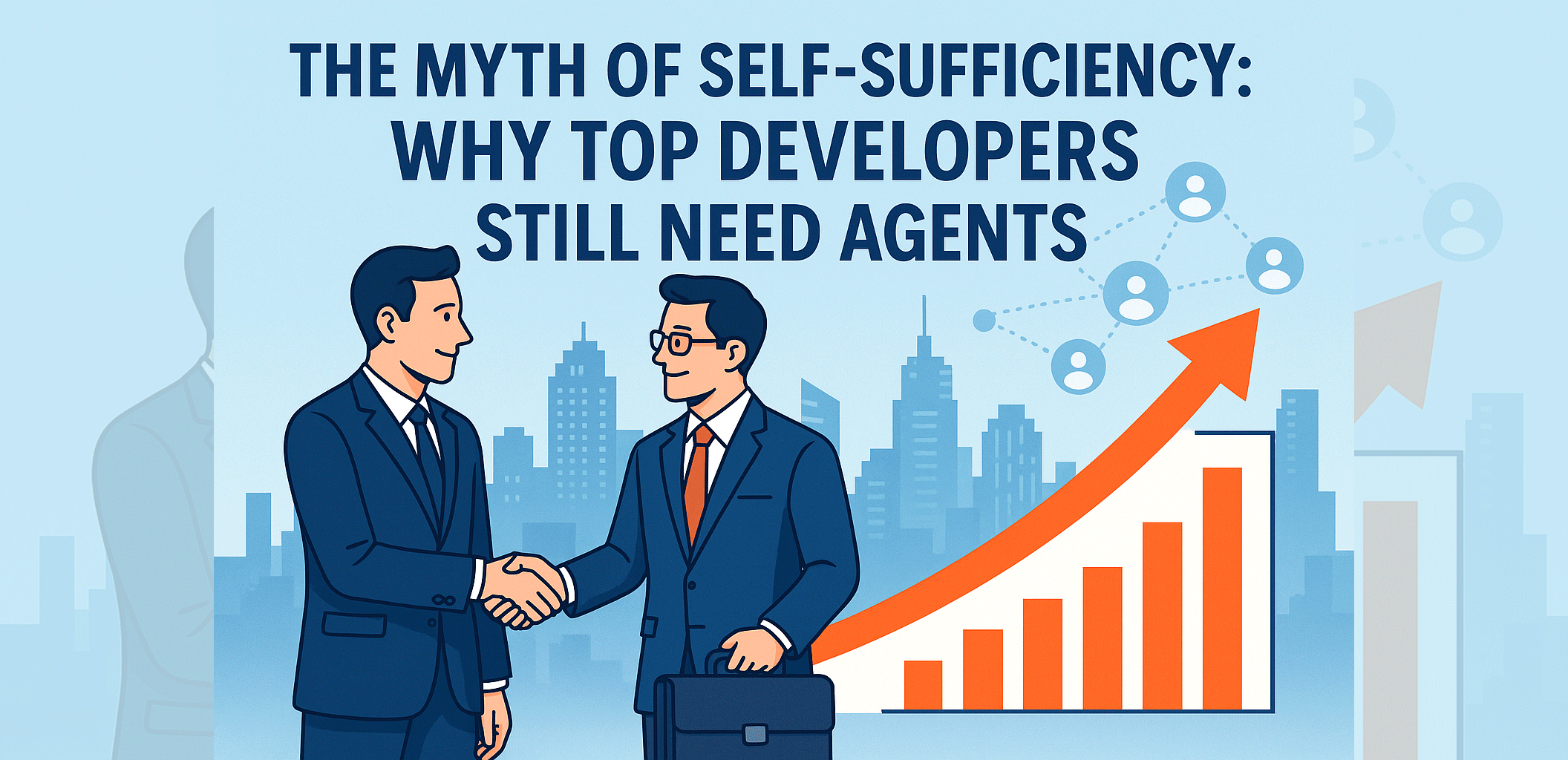The Myth of Self-Sufficiency: Why Top Developers Still Need Agents

It’s tempting to believe massive developers—with their in-house sales teams, colossal marketing budgets, and endless purchaser databases—have outgrown the agency model.
That belief is obsolete.
In today's chaotic, buyer-driven market, size no longer guarantees speed, and brand awareness doesn't guarantee a signed SPA. The modern property landscape is too fragmented, too competitive, and too saturated with options. Even the strongest developers cannot succeed without the single greatest asset agencies provide: a conversion network that actually moves listings.
1. The Challenge Shift: Visibility vs. Conversion
The market has inverted. The challenge for a developer used to be visibility; now, it's conversion.
Today, every unsold unit competes not just with other new launches, but with a flood of alternatives: secondary subsales, below-market-value (BMV) listings, and investor fire sales. To the buyer, every option looks like a deal.
No internal marketing team can outspend a market drowning in supply. Conversion—the ability to turn curiosity into commitment—is built on trust, relationships, and speed. These are the non-replicable assets that organized agency networks deliver at scale.
2. Limited Reach: The Developer's Blind Spot
The developer's marketing machine is powerful, but it's one-dimensional, primarily targeting the consumer. This approach misses the deeper, peer-to-peer layers of the sales ecosystem.
Agencies, conversely, are built for network multiplication. They thrive on co-broking, agent-to-agent referrals, and shared deal structures that exponentially multiply exposure across markets.
Developers have tried to mimic this with "Buyer-Get-Buyer" schemes, but they failed. Why? Because relationship capital cannot be manufactured by a campaign. Only structured agency networks can access the organic trust chain necessary for closing complex deals.
3. Agency Leverage: Scale Without Payroll
In-house sales teams are a fixed-cost liability: high salaries, high overhead, rigid output.
Agency partnerships are a variable-cost asset: pure commission, no salary, no benefits, and payment only for success.
The math is unavoidable. By utilizing a dedicated agency network, developers instantly offload the massive fixed cost of recruitment, training, and ground execution. This performance-based model transforms sales into an asset-light operation, freeing crucial cash flow and allowing the developer to focus on their core strength: building.
4. Exclusive Partnerships: The Modern Growth Engine
The most successful developers are not building bigger sales teams; they are building exclusive alliances. This modern strategy of concentration over dilution is actively killing the old model of fragmented, low-commitment vendor listings.
Case Study: The Strategic Alliance that Built Giants. Consider the major growth story of a large Malaysian developer (founded circa 2009) and the massive agency network (founded circa 2010) they strategically backed.
The developer committed to giving exclusive listing rights to this single, high-performance agency. The agency, given full ownership of the sales channel, solved the developer’s execution problems and drove velocity.
The Outcome: The developer rapidly grew from a small, boutique builder into a major national player running mass project developments. The agency simultaneously grew into the largest real estate network in Malaysia by agent count.
This proves that exclusivity isn't a loss of control—it's a creation of massive mutual leverage. The developer gets faster turnaround, cleaner reporting, and a lower cost per sale, all by selecting one strategic partner instead of managing dozens of non-committed vendors.
Final Verdict: Developers Build, Agencies Execute
The market has simplified the property value chain: Developers build; Agencies sell.
In an age where buyers have endless options, the ability to convert curiosity into a signature is the true currency—and that currency is held by the agency network.
Top developers have abandoned the myth of independence. They no longer ask, "Do we need agents?" They ask, "Which agency can move the needle the fastest and most efficiently?"
Agency leverage is no longer optional—it is the final competitive edge necessary to achieve high velocity, control costs, and maintain momentum in a market defined by supply.











































































































